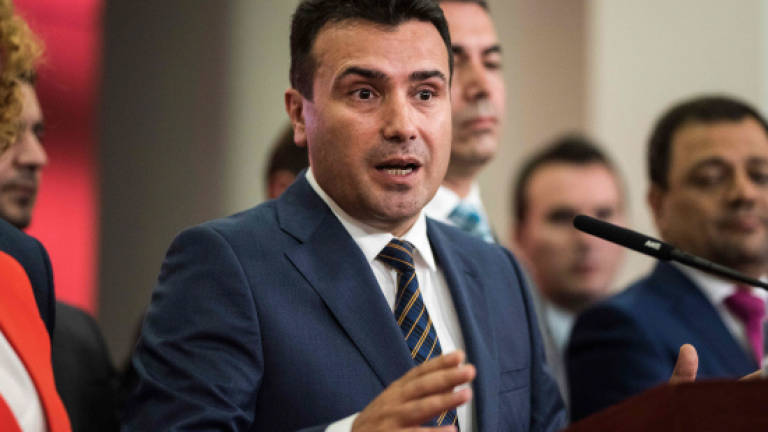Macedonia: A decades-long quarrel over a name

PARIS: Macedonia, the name of the ex-Yugoslav republic since its independence in 1991, has poisoned relations between Athens and Skopje for nearly three decades.
On Tuesday the two sides agreed it should be named the "Republic of North Macedonia," ending the lingering and bitter row.
For Greece, the name Macedonia is part of its own cultural heritage and a source of pride as an ancient province that was the core of Alexander the Great's empire more than 2,000 years ago.
The dispute has stalled the efforts of the new nation to join the European Union and other international institutions.
Here is some background:
Rejected from the start
Macedonia proclaimed its independence from Yugoslavia in 1991 but its international recognition was immediately blocked by Greece because of the name.
Besides claiming it as part of its heritage, Greece also had a province bordering the new country with the same name and feared Skopje could harbour territorial ambitions.
In 1992 more than a million Greeks joined a rally in the northern city of Thessaloniki, once the most important city in ancient Macedonia, to proclaim "Macedonia is Greek".
A country called FYROM
It was only with the adoption of a provisional name – the Former Yugoslav Republic of Macedonia (FYROM) – that the country was finally admitted into the United Nations in 1993.
Most other nations, including Russia and the United States, later recognised its constitutional title, the Republic of Macedonia.
Greece clamps down
In 1994 Greece imposed an economic embargo on Macedonia and prevented it from using the port at Thessaloniki, Skopje's main trading post.
Greece also demanded that Macedonia drops from its flag the rayed sun of Vergina, which it claimed was an ancient Greek symbol, as well as certain articles from its constitution.
A thaw
In September 1995 the neighbours signed an accord in New York opening the way for a normalisation of trade and political ties, but left the name dispute hanging.
The following month they opened liaison offices in their respective capitals and a new Macedonian flag – with the controversial sun replaced – was raised for the first time at the UN.
Greek support for neighbour
In 2001, Greece, the only country in the region with EU, NATO and eurozone membership, expressed support for Skopje, faced by an armed conflict with ethnic Albanian rebels.
Greek vetoes
Macedonia became a candidate for membership of the EU in 2005 but Greece blocked the start of negotiations.
In 2008, Macedonia presented itself as a candidate for membership of the NATO military alliance under the provisional name but again faced a Greek veto.
Relations sank with the erection of a huge statue of Alexander the Great in Skopje in 2011. Athens viewed it as an attempt to appropriate one of its greatest military heroes.
Tensions over migrants
In 2016, amid Europe's worst migrant crisis since World War II, Athens accused Skopje of using "excessive force" to push back hundreds of migrants trying to cross into Macedonia to continue their journey to northern Europe.
'A solution is feasible'
Soon after his election in June 2017, Macedonian Prime Minister Zoran Zaev promised a new push to settle the name dispute and relaunched the drive for EU and NATO membership.
New name agreed
Despite strong opposition from nationalists, negotiations on the name dispute were relaunched in January 2018 under the auspices of the UN.
After several meetings, Athens and Skopje agreed on Tuesday that the country will be renamed the "Republic of North Macedonia" and that Macedonia should amend its constitution accordingly. — AFP